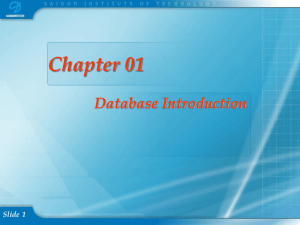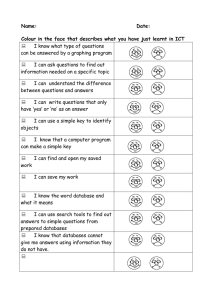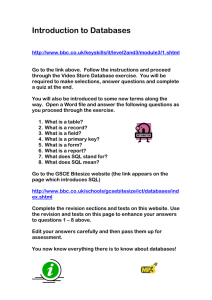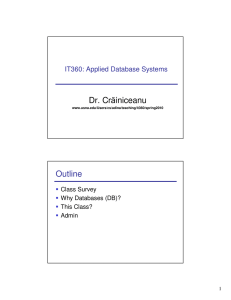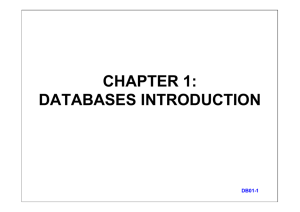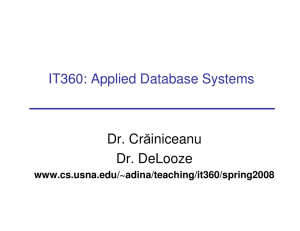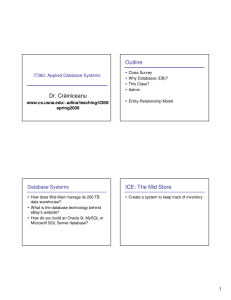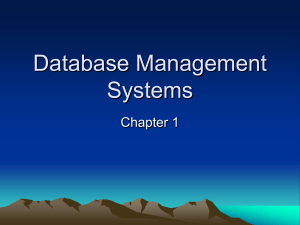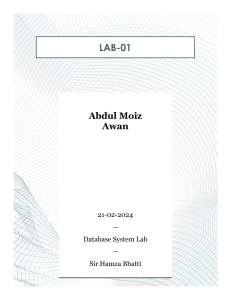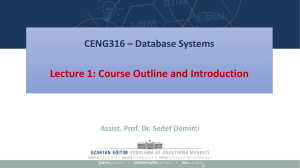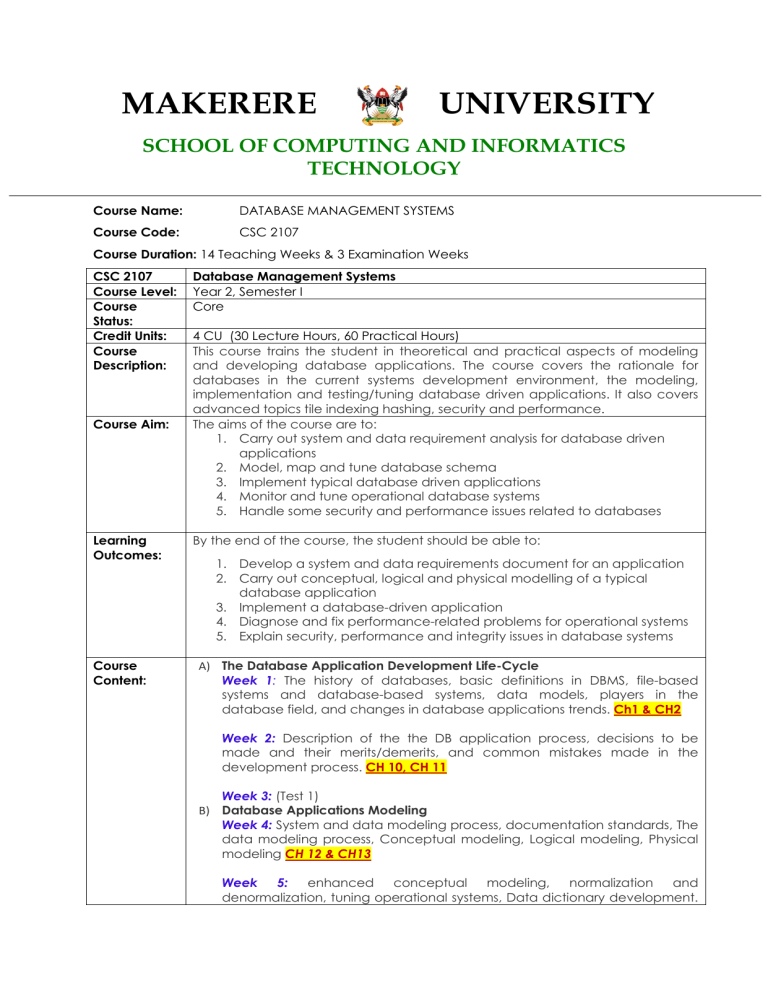
MAKERERE UNIVERSITY SCHOOL OF COMPUTING AND INFORMATICS TECHNOLOGY Course Name: DATABASE MANAGEMENT SYSTEMS Course Code: CSC 2107 Course Duration: 14 Teaching Weeks & 3 Examination Weeks CSC 2107 Course Level: Course Status: Credit Units: Course Description: Course Aim: Learning Outcomes: Course Content: Database Management Systems Year 2, Semester I Core 4 CU (30 Lecture Hours, 60 Practical Hours) This course trains the student in theoretical and practical aspects of modeling and developing database applications. The course covers the rationale for databases in the current systems development environment, the modeling, implementation and testing/tuning database driven applications. It also covers advanced topics tile indexing hashing, security and performance. The aims of the course are to: 1. Carry out system and data requirement analysis for database driven applications 2. Model, map and tune database schema 3. Implement typical database driven applications 4. Monitor and tune operational database systems 5. Handle some security and performance issues related to databases By the end of the course, the student should be able to: 1. Develop a system and data requirements document for an application 2. Carry out conceptual, logical and physical modelling of a typical database application 3. Implement a database-driven application 4. Diagnose and fix performance-related problems for operational systems 5. Explain security, performance and integrity issues in database systems A) The Database Application Development Life-Cycle Week 1: The history of databases, basic definitions in DBMS, file-based systems and database-based systems, data models, players in the database field, and changes in database applications trends. Ch1 & CH2 Week 2: Description of the the DB application process, decisions to be made and their merits/demerits, and common mistakes made in the development process. CH 10, CH 11 Week 3: (Test 1) B) Database Applications Modeling Week 4: System and data modeling process, documentation standards, The data modeling process, Conceptual modeling, Logical modeling, Physical modeling CH 12 & CH13 Week 5: enhanced conceptual modeling, normalization and denormalization, tuning operational systems, Data dictionary development. CH14 & CH 15 Week 6: Test 2 C) SQL, Scripting and Mini Project Week 7 SQL Data Definition, SQL Data Manipulation, survey of a scripting language, CH6 & CH7 Week 8 & 9: micro project develop a small database driven application and document the development process (CH 4) D) Advanced topics in DBMS Week 10: Relational algebra, query processing, (CH5, CH23) Week 11: Indexing, Hashing CH20, CH22, Week 12: Emerging architectures (parallel databases) CH24, CH26 Week 13: Revision & Projects assessment Week 14: Revision Mode Delivery: of Mode of Assessment: Learning Materials: Facilitator(s): databases, distributed The study will be blended learning including a mix of student centered and learning teacher centered pedagogy. Specifically the student is expected to do some guided reading as well as practically implementing a database application. The assessment will be done by tests/assignment (40%) and final examination (60%) Thomas Connolly and Carolyn Begg (2016) Database systems. A practical approach to design, implementation and management (Addison-Wesley) 6th Global Edition Dr. Innocent Ndibatya (innocent.ndibatya@mak.ac.ug) (+256 772341567)-WhatsApp Only Mr. Ggaliwango Marvin (mggaliwango@gmail.com) (+256754655524)
